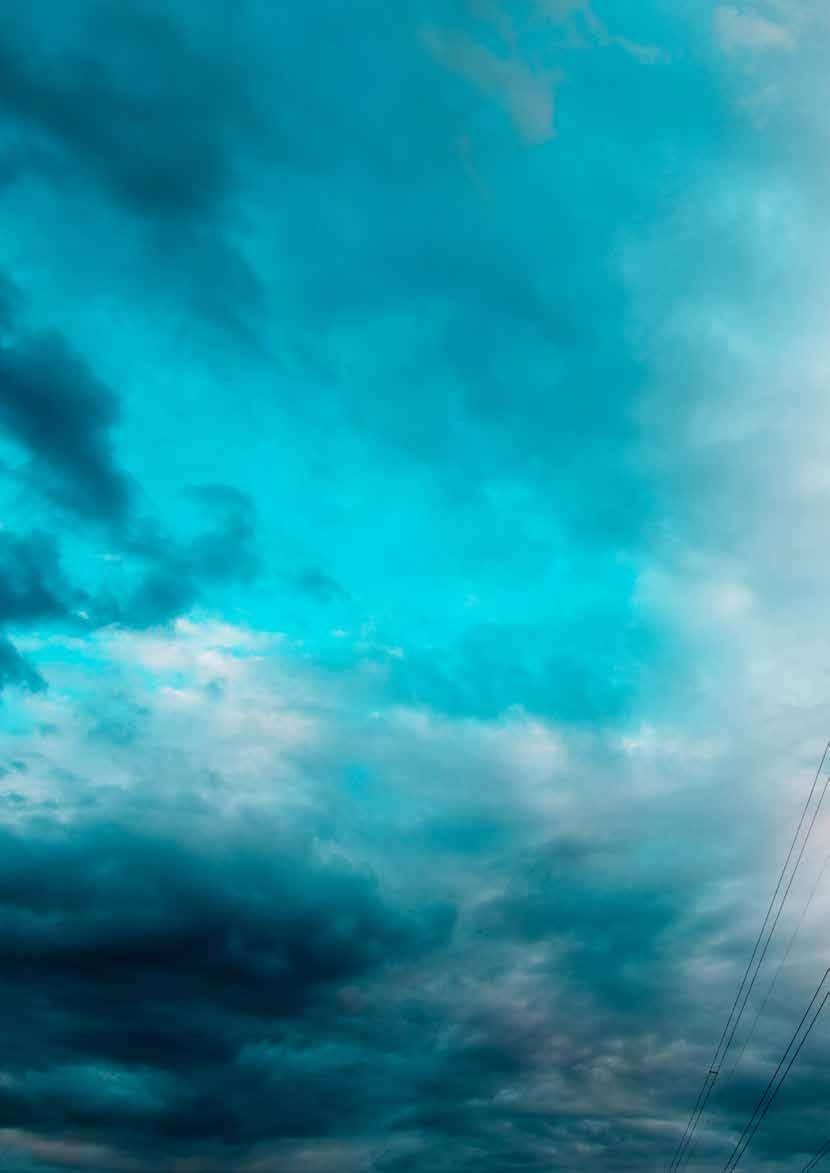
4 minute read
Tshwane ready to step it up
from ReSource May 2020
by 3S Media
Out of the 12 landfill sites in the Tshwane metro, only four are still active. In the last three years, the metro has closed down the Derdepoort, Valhalla, Temba, Kwaggasrand, and Garstkloof dumping sites – resulting in a rise in illegal dumping.
shwane is planning on transforming its T waste management system, away from dumping everything in landfills to a modern system with effective recycling facilities and composting plants. It is one of the many initiatives directed towards the fulfilment of Tshwane´s vision for a more liveable, resilient, and inclusive city.
Advertisement
Tshwane has one large regional landfill, one medium landfill and two small landfills operated by the municipality. These are Hatherley (GLB-), Ga-Rankuwa (GMB-), Bronkhorstspruit (GSB-), and Soshanguve (GSB-). Hatherley has an estimated remaining life of more than 20 years, while Bronkhorstspruit, Ga-Rankuwa and Soshanguve have only 5 to 10 years remaining.
Speaking at the IWMSA’s Waste Crisis in Gauteng seminar, Abel Malaka, head: Waste Management Division, City of Tshwane, said the city is focusing on initiatives that will secure waste disposal facilities, for better waste management in Tshwane. These are the following: • acquisition of private landfill site airspace • alternative waste treatment • landfill sites closure plans and alternative landfills.
Malaka indicated that four sites have been identified and recommended for feasibility studies – namely the Temba, Onderstepoort, Kwaggasrand and Garstkloof landfill sites.
For the Temba landfill, a closure application has been submitted to the Gauteng Department of Agriculture and Rural Development (GDARD) for consideration.
It will alternatively be used as a garden waste site or waste transfer station, where municipal solid waste is temporarily held and sorted before heading to a landfill or waste-to-energy plant. Garbage trucks that run city routes drop off their trash here before it’s loaded on to larger vehicles and shipped off.
The Onderstepoort landfill is also in the process of submitting a final report for closure, also for consideration by the GDARD. It will alternatively be used as a garden waste site, a transfer station or rubble crushing plant. It is also being proposed that it be turned into a materials recovery and energy facility, which will receive recyclable materials and then use a combination of equipment and manual labour to separate and densify materials in preparation for shipment to end-user manufacturers.
Kwaggasrand is already an existing materials recovery facility, while the Garstkloof landfill site will alternatively be used as a rubble crushing plant and waste sorting facility.
Alternative waste treatment
Malaka says the acquisition of airspace is a short-term solution for the city, which is currently in negotiation with private landfill owners for the outright purchase of airspace.
Faced with dwindling landfill space for waste disposal, the Gauteng Infrastructure Financing Agency (GIFA) was appointed in March 2015 to conduct a feasibility study into alternative waste treatment methodologies.
Tshwane then announced a large wasteto-energy project for its landfill sites and wastewater facilities. It would extract methane gas at landfill sites and install biodigester facilities to generate biogas from wastewater treatment plants and landfill gas.
The GIFA allocated a budget and a transactional advisor was appointed in November 2015. The GIFA and Tshwane then signed a memorandum of understanding on the project in May 2016; upon completion of the feasibility study, the GIFA recommended a waste-toenergy plant for Pretoria west power station and Rooiwal.
The city is currently approaching private companies in the energy sector to convert Pretoria west power station into an incinerator. This power station, which

Illegal dumping has risen following the closure of several landfill sites
was built in 1952 and has a design capacity of 180 MW of power, is destined to be transformed from its usage of coal to generate power to using waste for energy.
Improving landfill site compliance
Tshwane has recently been labelled as having some of the most non-compliant landfill sites in the country. Three of Tshwane’s landfill and waste disposal sites faced imminent closure last year, due to non-compliance with the conditions of the permits/licences under which they operate. Malaka says the city is developing an action plan to ensure compliance and is doing an

audit report on landfill sites conducted by the department.
An airspace assessment and financial provision report has been completed. In addition, the city appointed a panel of service providers to undertake surface water and groundwater monitoring, as well as an independent external audit, which has advanced a report to motivate for external landfill site operations and management.
Tshwane is developing an action plan to ensure compliance at its landfills
Specialist Waste Management Consultants


• Waste Collection Optimisation • Waste Transfer Station design • General Waste Landfill design • Hazardous Waste Landfill design • Landfill Rehabilitation • Landfill Auditing and Monitoring


• Landfill Closure • Leachate Treatment • Regional Waste Studies • PPP Involvement in Waste Management • Alternative Technologies for Waste Reduction • Integrated Waste Management Plans
Contact Numbers Telephone:+27 (0)21 982 6570 Fax:+27 (0)21 981 0868
Physical Address 60 Bracken Street, Protea Heights South Africa, 7560











